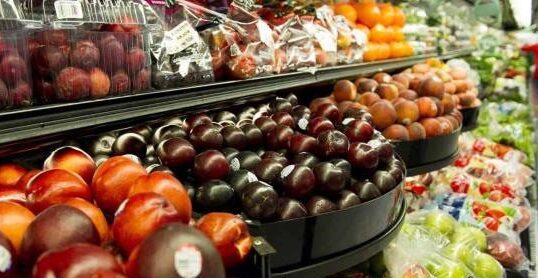BTN News: The Caribbean region faces a significant challenge in reducing its reliance on imported food, an issue that has grown increasingly pressing as the effects of climate change intensify. Mario Lubetkin, the FAO’s Assistant Director-General for Latin America and the Caribbean, recently emphasized that the path to decreasing food imports is fraught with difficulties but offers multiple potential solutions. The ambitious goal set by the Caribbean Community (Caricom), comprising 15 member states, aims to reduce food imports by 25% by 2025. However, this endeavor has encountered serious obstacles, including the devastating impact of Hurricane Beryl.
Lubetkin, currently on a visit to Barbados, underscored the complexity of this challenge, noting that there is no single solution but rather a multitude of strategies that must be employed to achieve this goal. Among these, improving irrigation stands out as a crucial factor for enhancing agricultural productivity in the region. Many Caribbean nations have recognized that effective irrigation systems are essential for creating the right conditions to boost local food production.
The proposed irrigation project is particularly promising due to the Caribbean’s suitable topographical conditions. This initiative involves digging furrows along crop fields to allow water to flow down naturally by gravity, thereby optimizing water use and increasing agricultural yields. Yet, the execution of such a project is not without its challenges, especially in the face of the growing threat posed by climate change.
Lubetkin acknowledged that climate change is a formidable obstacle, severely hampering the Caribbean’s efforts to invest in agricultural development and reduce hunger. The region’s vulnerability to extreme weather events, such as hurricanes, has made it difficult to sustain progress in increasing food production. The FAO representative also highlighted the importance of better sharing knowledge, innovation, and technology within the region. While external support is necessary, the primary focus must be on strengthening internal capabilities.
The recent devastation caused by Hurricane Beryl exemplifies the fragility of the Caribbean’s agricultural sector. This category 4 hurricane struck Jamaica, Grenada, and Saint Vincent and the Grenadines in early July, resulting in significant loss of life and extensive damage to infrastructure and agriculture. Guyana’s President, Irfaan Ali, who leads Caricom’s initiative to boost local food production, expressed concern that although the initiative had reached 70% completion, it is now at risk due to the hurricane’s impact.
Before Hurricane Beryl, the region had already seen a reduction in food import costs by approximately 12%, amounting to over $500 million. However, the hurricane caused agricultural losses exceeding $150 million, highlighting the delicate balance between progress and the destructive forces of nature. The countries comprising Caricom, including Antigua and Barbuda, Barbados, Bahamas, Belize, Dominica, Grenada, Guyana, Haiti, Jamaica, Montserrat, Saint Kitts and Nevis, Saint Lucia, Saint Vincent and the Grenadines, Suriname, and Trinidad and Tobago, now face the daunting task of rebuilding and continuing their efforts to reduce food imports.
Regarding the broader objective of eradicating hunger in Latin America and the Caribbean, Lubetkin expressed cautious optimism. The 2024 edition of the State of Food Security and Nutrition in the World (SOFI) report indicated that the percentage of people experiencing hunger in the region had risen from 5.6% in 2019 to 6.9% in 2021. However, a gradual decrease was observed last year, bringing the figure down to 6.2%. While these developments are encouraging, Lubetkin stressed that much work remains, with 41 million people in the region still facing hunger.
One notable achievement, according to Lubetkin, is that Latin America and the Caribbean is the only region globally to have reduced hunger rates. Nonetheless, hunger continues to affect 5.2% of the population in South America, 5.8% in Mesoamerica, and a staggering 17.2% in the Caribbean. Additionally, the prevalence of moderate or severe food insecurity in Latin America and the Caribbean stands at 28.2%, slightly below the global average of 28.9%.
In conclusion, while the Caribbean has made some strides in reducing its reliance on imported food and addressing hunger, the journey is far from over. The region faces a complex interplay of challenges, including the need for better irrigation, the ongoing threat of climate change, and the necessity of internal and external collaboration. The resilience and determination of the Caribbean nations will be crucial in overcoming these obstacles and achieving long-term food security.


